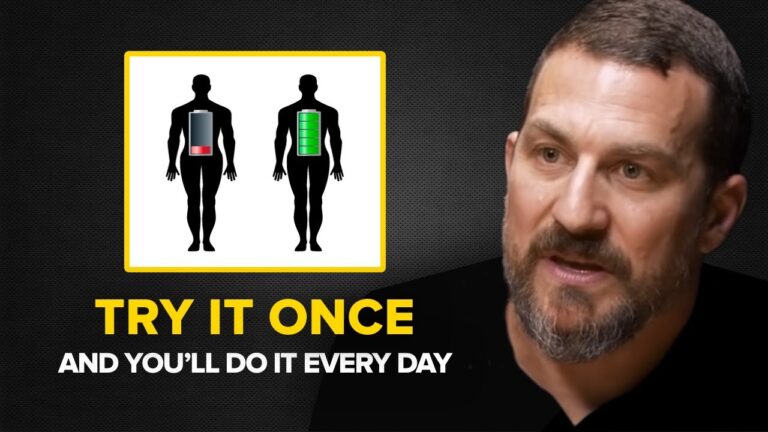High-paying Pediatric Nurse Practitioner Job: Description & Salary

Pediatric Nurse Practitioner Job Description Template
Pediatric Nurse Practitioner Job Description A Pediatric Nurse Practitioner (PNP) is a highly skilled healthcare professional who specializes in providing primary and specialty care to infants, children, and adolescents. They work closely with pediatricians and other healthcare providers to deliver comprehensive care to pediatric patients. Responsibilities: – Conducting physical exams and assessing the health status of pediatric patients. – Diagnosing and treating common illnesses, injuries, and infections in children. – Administering vaccinations and medications as prescribed. – Collaborating with pediatricians and other healthcare professionals to develop and implement treatment plans. – Providing counseling and education to patients and their families on health promotion and disease prevention. – Monitoring and managing chronic conditions such as asthma, diabetes, and allergies in children. – Ordering and interpreting diagnostic tests such as blood work, X-rays, and ultrasounds. – Assisting in minor surgical procedures and wound care. – Documenting patient care and maintaining accurate medical records. – Providing emotional support and comfort to pediatric patients and their families. Qualifications: To become a Pediatric Nurse Practitioner, individuals must complete a Bachelor of Science in Nursing (BSN) degree and obtain a registered nurse (RN) license. They then need to gain experience as a registered nurse before pursuing a Master of Science in Nursing (MSN) degree with a specialization in pediatric nursing. After completing their education, individuals must pass a national certification exam to become a Pediatric Nurse Practitioner. Skills: Pediatric Nurse Practitioners should possess excellent communication and interpersonal skills to establish rapport and effectively communicate with pediatric patients and their families. They must also have strong critical thinking and problem-solving abilities to diagnose and treat various health conditions. Additionally, they should be compassionate, patient, and have a genuine desire to work with children. In conclusion, a Pediatric Nurse Practitioner plays a crucial role in providing specialized healthcare services to pediatric patients. They are responsible for diagnosing and treating illnesses, providing preventive care, and supporting the emotional wellbeing of children and their families.Pediatric Nurse Practitioner Responsibilities
Pediatric Nurse Practitioner Requirements
How Much Does A Pediatric Nurse Practitioner Make?
Pediatric Nurse Practitioner Salary
| Experience Level | Salary Range |
|---|---|
| Entry Level | $75,000 – $95,000 |
| Mid-Career | $85,000 – $110,000 |
| Experienced | $95,000 – $130,000 |
| Top-Level | $110,000 – $150,000 |
A Pediatric Nurse Practitioner’s salary varies depending on their experience level. Entry-level practitioners can earn between $75,000 and $95,000 per year, while mid-career practitioners can expect salaries ranging from $85,000 to $110,000. Experienced practitioners typically earn between $95,000 and $130,000 annually, while those at the top-level of their profession can earn between $110,000 and $150,000.
Pediatric Nurse Practitioner Salaries by Country
Top Paying Countries for Pediatric Nurse Practitioner
| Country | Average Salary (USD) |
|---|---|
| United States | $110,000 |
| Switzerland | $95,000 |
| Australia | $90,000 |
| Netherlands | $85,000 |
| Canada | $80,000 |
A Pediatric Nurse Practitioner is a specialized healthcare professional who provides primary and specialized care to infants, children, and adolescents. They play a crucial role in promoting and maintaining the health of children. The table above showcases the top paying countries for Pediatric Nurse Practitioners. The United States offers the highest average salary of $110,000 per year, followed by Switzerland, Australia, Netherlands, and Canada. These countries provide attractive compensation packages, reflecting the importance of pediatric healthcare in their societies. As the demand for pediatric healthcare professionals continues to rise, these countries offer excellent opportunities for Pediatric Nurse Practitioners looking for competitive salaries and rewarding careers.
A video on the topic Pediatric Nurse Practitioner
Video Source : University of Texas Health Science Center at San Antonio – UT Health San AntonioInterview Questions for Pediatric Nurse Practitioner
1. Can you tell us about your experience as a Pediatric Nurse Practitioner?
I have been working as a Pediatric Nurse Practitioner for the past five years. During this time, I have had the opportunity to work in various settings, including hospitals, clinics, and schools. I have gained experience in providing comprehensive healthcare services to infants, children, and adolescents.
2. What motivated you to specialize in pediatric nursing?
I have always been passionate about working with children and making a positive impact on their lives. I believe that children require specialized care, and I wanted to be a part of their healthcare journey. Seeing the resilience and joy in children despite their illnesses or injuries motivates me every day.
3. How do you approach building relationships and communicating with pediatric patients and their parents?
I understand the importance of building trust and rapport with both the pediatric patients and their parents. I take the time to listen to their concerns, answer their questions, and involve them in the decision-making process. I use age-appropriate language and tools to ensure effective communication and make sure that both the child and their parents feel comfortable and heard.
4. How do you handle a difficult or scared child during a medical examination or procedure?
When dealing with a difficult or scared child, I prioritize their emotional well-being and try to create a calming and supportive environment. I use distraction techniques, such as storytelling or playing with toys, to divert their attention. I explain the procedure in a child-friendly manner and allow them to ask questions or express their fears. I also involve parents in comforting and reassuring the child.
5. How do you stay updated with the latest advancements and research in pediatric healthcare?
Continuing education is crucial in the field of healthcare, and I make sure to attend conferences, workshops, and seminars related to pediatric nursing. I also subscribe to reputable medical journals and online resources to stay updated with the latest advancements and research in pediatric healthcare. Additionally, I actively participate in professional organizations and engage in discussions with colleagues to exchange knowledge and experiences.
6. Can you share an example of a challenging pediatric case you have encountered and how you handled it?
One challenging case I encountered was a child with a chronic illness who required long-term management. It involved complex medication regimens, frequent hospital visits, and coordination with multiple specialists. I worked closely with the child’s family to develop a comprehensive care plan, educate them about the condition, and provide emotional support. I ensured regular communication and coordination with other healthcare providers to ensure continuity of care.
7. How do you handle a situation where a parent disagrees with your treatment plan?
In such situations, I maintain open and respectful communication with the parent. I listen to their concerns and address any misconceptions or doubts they may have. I provide them with detailed explanations about the rationale behind the treatment plan and involve them in the decision-making process as much as possible. If necessary, I may seek a second opinion or collaborate with other healthcare professionals to find a solution that satisfies both the parent and the child’s best interests.
8. How do you ensure patient confidentiality and privacy in your practice?
Patient confidentiality and privacy are of utmost importance in healthcare. I strictly adhere to HIPAA regulations and maintain confidentiality by ensuring that patient information is securely stored and accessed only by authorized individuals. I communicate sensitive information in private spaces and use secure electronic systems for documentation. I also educate my staff about the importance of patient confidentiality and regularly review privacy policies to ensure compliance.
9. How do you handle the emotional toll that can come with working in pediatric healthcare?
Working in pediatric healthcare can be emotionally challenging, especially when dealing with critically ill children or difficult situations. I prioritize self-care and have developed coping mechanisms to manage the emotional toll. I make sure to take breaks, engage in hobbies, and seek support from colleagues and mentors. I also participate in debriefing sessions or counseling when needed to process emotions and prevent burnout.
10. What qualities do you believe are essential for a Pediatric Nurse Practitioner to possess?
I believe that a Pediatric Nurse Practitioner should have excellent communication skills, empathy, and a genuine love for children. Patience, adaptability, and the ability to work well under pressure are also essential qualities. A strong knowledge base, critical thinking skills, and a commitment to lifelong learning are crucial for providing evidence-based care. Lastly, having a positive attitude and being a team player are essential for collaborating with other healthcare professionals and providing holistic care to pediatric patients.
The Best Universities For The Pediatric Nurse Practitioner Profession.
- Johns Hopkins University
- University of Pennsylvania
- University of California, San Francisco
- University of Washington
- University of Michigan
- Yale University
- Columbia University
- University of North Carolina at Chapel Hill
- University of Colorado
- University of Pittsburgh






